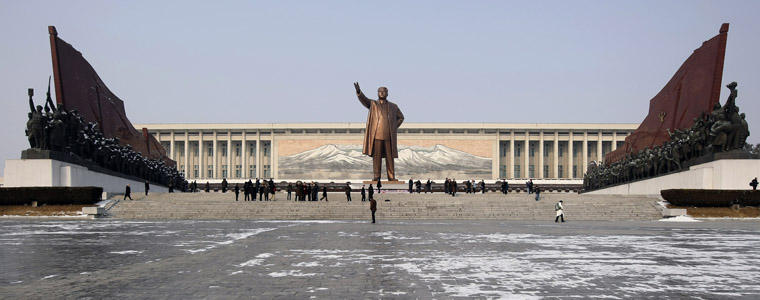USIP has been convening Asia-Pacific naval attaches in Washington to discuss the significant strategic shifts in that vital region, an effort to encourage dialogue that reflects the “rebalancing” of U.S. policy toward the Asia-Pacific.

Since the death of Kim Jong-il and the ascension of his son, Kim Jong-un, as the leader of North Korea, events on the Korean Peninsula have ratcheted up tensions in the region significantly, albeit with an unpredictable ebb and flow. As the international community struggles to understand and deal with a young, intransigent and bellicose new leader, it employs the blunt instrument of increasing sanctions to try to compel the North Korean leader to acquiesce. But this strategy also carries with it risks of unintended consequences. Kim Jong-un’s demonstrated willingness to test nuclear weapons and launch advanced long-range missiles—while issuing state propaganda that proclaims aspirations to bomb the United States—have broken new ground, raising security concerns among the United States and its allies while alarming the Congress and the American people.
North Korea’s conduct may have drawn most of the public attention on Asia-Pacific security issues of late. But more broadly, the economic dynamism, political trends and advancing military capabilities in the region provide the context for a much broader and deeper shift in America’s posture: the rebalancing of U.S. foreign policy to the Asia-Pacific region, an approach first rolled out by the Obama administration in 2011.
So, it seemed only natural that the U.S. Institute of Peace (USIP) would move to take into account this national policy movement. Sensing a lack of opportunities for foreign naval attaches stationed in Washington to regularly convene and discuss issues of critical importance to conflict prevention and mutual understanding, USIP chose to launch the NAVARM (Naval Attaché Roundtable Meetings) for Asia-Pacific naval attachés in November 2012. Naval attaches join with U.S. policy-making, military, think tank and USIP experts to discuss topics of strategic regional importance and promote dialogue among Washington’s attaché corps. Hosting Asia-Pacific naval attachés at USIP helps advance U.S. Navy and interagency understanding of how these attachés interact on critical regional issues. Those participating also learn about USIP’s analytical and programming capabilities.
On April 24, USIP hosted its third in a continuing series of NAVARMs. Naval attaches and members of several U.S. agencies were briefed by Ambassador Clifford A. Hart, Jr., the U.S. Special Envoy for the Six-Party Talks, on the topic “Korean Peninsula: Challenges to Diplomacy.” Sifting through North Korean rhetoric and U.S. policy and political factors on North Korea, the NAVARM discussed the past patterns of North Korea-related security flare-ups, as well as the current trajectory of events on the peninsula and regional responses. The attendees had the opportunity to discuss this important topic in an intimate, non-attribution forum.
There will, no doubt, be much to discuss in the future, and the forum we’ve established can play a useful role in building better understanding and contacts for everyone involved.
Lieutenant Commander Aaron R. Austin came to the U.S. Institute of Peace as an interagency professional-in-residence in spring 2012 from the U.S. Navy (USN). He currently works as a Northeast Asia specialist and on projects related to the development of increased relations between the USN, USIP and the NGO community.